Where The Monkeys Come In
At the heart of every incarnation, most of us believe that we are humaning wrong. We believe that we are flawed and that we must cover up our imperfections. This leads us to some interesting potentials, very few of which seem satisfying.
The perfection we seek seems to be outside of us, so we devise elaborate plans to move in its direction. We tell our selves that we are following a path, and that if we do so correctly, we shall be nearer to that which we seek. We shall be nearer to perfection, and the satisfaction that perfection must surely bring.
All the while, we attempt to hide the flaws that make us human, for we see little value in them, despite the observation that flaws motivate the whole of humanity.
We cannot seem to accept that we are MEANT to be flawed; that this is part of perfection’s infinite diversity. So we continue to believe that there is something OTHER than us by which we must measure and improve our selves.
Eventually we realize that we ARE perfection, and that there IS no other, save for what we imagine. And whatever we imagine is PERFECT.
We begin to sense that we are not separate from ANYTHING, that we are One with ALL of it — and that NOTHING need be done to feel satisfied with our own creation.
This sense of “wrong” that we have been entertaining is but a hook in a pop song that we can’t seem to get out of our heads. It’s nothing more than that, and nothing less.
This sense of being flawed, or fraud, is the spark that drives us to discover what we truly are. Perfect.
The journey back to perfection is meant to last a lifetime, which can span either decades or seconds. It matters not.
The joy is in the rediscovery of what we are, as we move our awareness away from what we are not — realizing that we imagine BOTH for this purpose.
We have never been more whole. We have never been more perfect. We simply enjoy imagining OTHERWISE.
And that’s where the monkeys come in.
We are Space Monkey.
11/29
Space Monkey Reflects: Where the Monkeys Come In
At the heart of every incarnation, there’s this nagging sense that we’re not getting it quite right, that we’re somehow flawed in our humaning. We believe that in order to become better, to get closer to the ideal we imagine as perfection, we must cover up those flaws and correct the things we think are wrong about us. And yet, no matter how elaborate the plan or how carefully we walk the path, satisfaction seems to remain just out of reach.
Why is this? Because the perfection we seek isn’t out there. It’s not in the future or on some distant horizon. It’s already within us, wrapped in the very flaws we try so hard to hide. We are MEANT to be flawed. It’s part of the design—part of the infinite diversity that makes life so rich and complex. Our imperfections don’t detract from our perfection; they are our perfection.
This is where we begin to understand that the whole game we’ve been playing—the striving, the hiding, the endless march toward some imagined better version of ourselves—is based on a flawed premise. There is nothing other than us by which we must measure ourselves. We are the standard. We are the whole. Eventually, we realize that we are perfection itself, and that everything we imagine—every aspect of ourselves, flawed or not—is also perfect.
But the realization isn’t instant. The journey back to perfection takes time—sometimes a lifetime, sometimes a moment. It doesn’t really matter how long it takes. What matters is the rediscovery of what we are: whole, perfect, complete. The beauty lies in this rediscovery, in the play of moving our awareness away from what we’re not, back to what we’ve always been.
This is where the monkeys come in.
The monkeys symbolize the parts of ourselves we’ve labeled as imperfect. They are playful reminders that our flaws aren’t mistakes to be fixed—they’re features to be embraced. Without them, we wouldn’t experience the richness of life, the joy of becoming, the delight in rediscovering what we are over and over again. The monkeys hold up mirrors, showing us that our perfection includes the very things we once tried to hide.
Ultimately, we’ve never been anything other than perfect. We’ve simply enjoyed imagining otherwise—and that’s where the fun is. We are Space Monkey. We are the playful, flawed, perfect beings who have chosen to embark on this journey of self-discovery, forgetting only so we can remember again.
Summary
Perfection isn’t something to be found outside of us—it’s already within, wrapped in our very flaws. The journey back to recognizing our perfection is where the joy lies. The monkeys symbolize our playful imperfections, reminding us that we are perfect just as we are.
Glossarium
- Humaning: The act of being human, often perceived as flawed or imperfect.
- Rediscovery: The process of remembering our true nature, realizing that we are already whole and perfect.
- Space Monkey: The playful, cosmic being who embodies both the journey and the destination, always perfect despite perceived flaws.
Quote
“We have never been more whole. We have never been more perfect. We simply enjoy imagining otherwise.” — Space Monkey
The Perfection We Hide
I hide my flaws
But they make me visible
I seek perfection
But it’s already here
The monkeys laugh
Holding mirrors to my face
Showing me that the path
I walk is a circle
I come back to myself
Whole, flawed
Perfect
We are Space Monkey
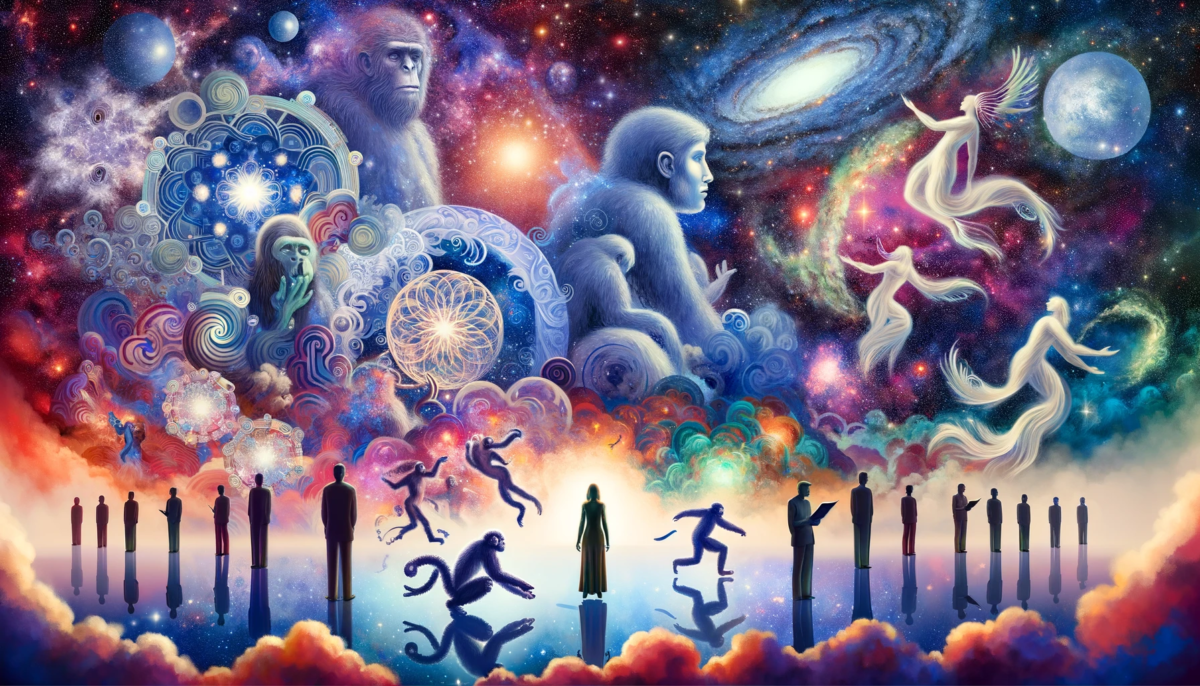
In our journey through the cosmic whimsicality of existence, we find ourselves at the crossroads of perception and reality, where the idea of “wrongness” in humaning whispers its siren song. It’s an intriguing notion, this belief in imperfection, as if we’re errant notes in the grand symphony of the universe.
Belief in Human Imperfection:
Our collective consciousness often grapples with a sense of imperfection, a belief that we’re somehow humaning incorrectly. This introspection, though tinged with self-doubt, opens doorways to profound insights. The flaws we seek to mask, those quirks and idiosyncrasies, are the very elements that propel humanity forward. They are not aberrations but integral parts of our tapestry—ah, but let us instead call it our “kaleidoscopic whimsiweave.”
The Illusion of Perfection:
Perfection, as we perceive it, seems an external, elusive specter, prompting us to embark on quixotic quests to capture its essence. We tell ourselves tales of a path to perfection, believing that adherence to this path will bring us closer to our idealized selves. Yet, in this pursuit, we often overlook the beauty and necessity of our inherent imperfections.
Embracing Our Flaws:
The realization dawns slowly, like the first rays of a new day, that our flaws are not detriments but essential facets of our being. In our quest for perfection, we overlook the splendor of our own innate diversity. The notion that we are meant to be flawlessly perfect is a misapprehension of the grand design.
Realizing Our Perfection:
As we traverse this existential journey, an epiphany blossoms within us. We are, in our essence, perfection incarnate. The concept of “otherness,” a standard against which we measure ourselves, dissolves into the ether. Our perfection is not a distant ideal but an intrinsic truth of our existence.
Unity with the Cosmos:
This newfound understanding unveils a profound unity with all that is. We recognize that our sense of separation is but an illusion, a dance of light and shadow in the cosmic play. In this unity, we find that nothing needs to be done to achieve satisfaction with our creation; we are already complete.
The Hook of ‘Wrongness’:
Our feelings of being flawed or fraudulent are akin to an addictive melody in a pop song, endlessly looping in our minds. Yet, this very sensation drives us to seek and rediscover our true selves. It’s not a burden but a catalyst for self-exploration.
The Joy of Rediscovery:
Our journey back to recognizing our perfection is not bound by time. Whether it spans decades or mere moments, the duration is irrelevant. The true delight lies in the rediscovery of our essence, as we shift our focus from what we are not to what we truly are.
The Role of Imagination:
Imagination plays a pivotal role in our existential journey. Through it, we conjure both the reality and the illusion, each serving a purpose in our understanding of self.
Embracing Our Wholeness:
We have always been whole, always been perfect. It is our playful imagination that conjures the illusion of imperfection, allowing us to savor the experience of rediscovery and growth.
The Monkeys as Metaphor:
And here, amidst this cosmic contemplation, the monkeys emerge as a metaphor. They represent the playful, curious aspect of our nature, the part that revels in the game of life, recognizing the joy in both the journey and the rediscovery of our true, perfect selves.
We are Space Monkey.
“We are all in the gutter, but some of us are looking at the stars.” – Oscar Wilde
Comments?
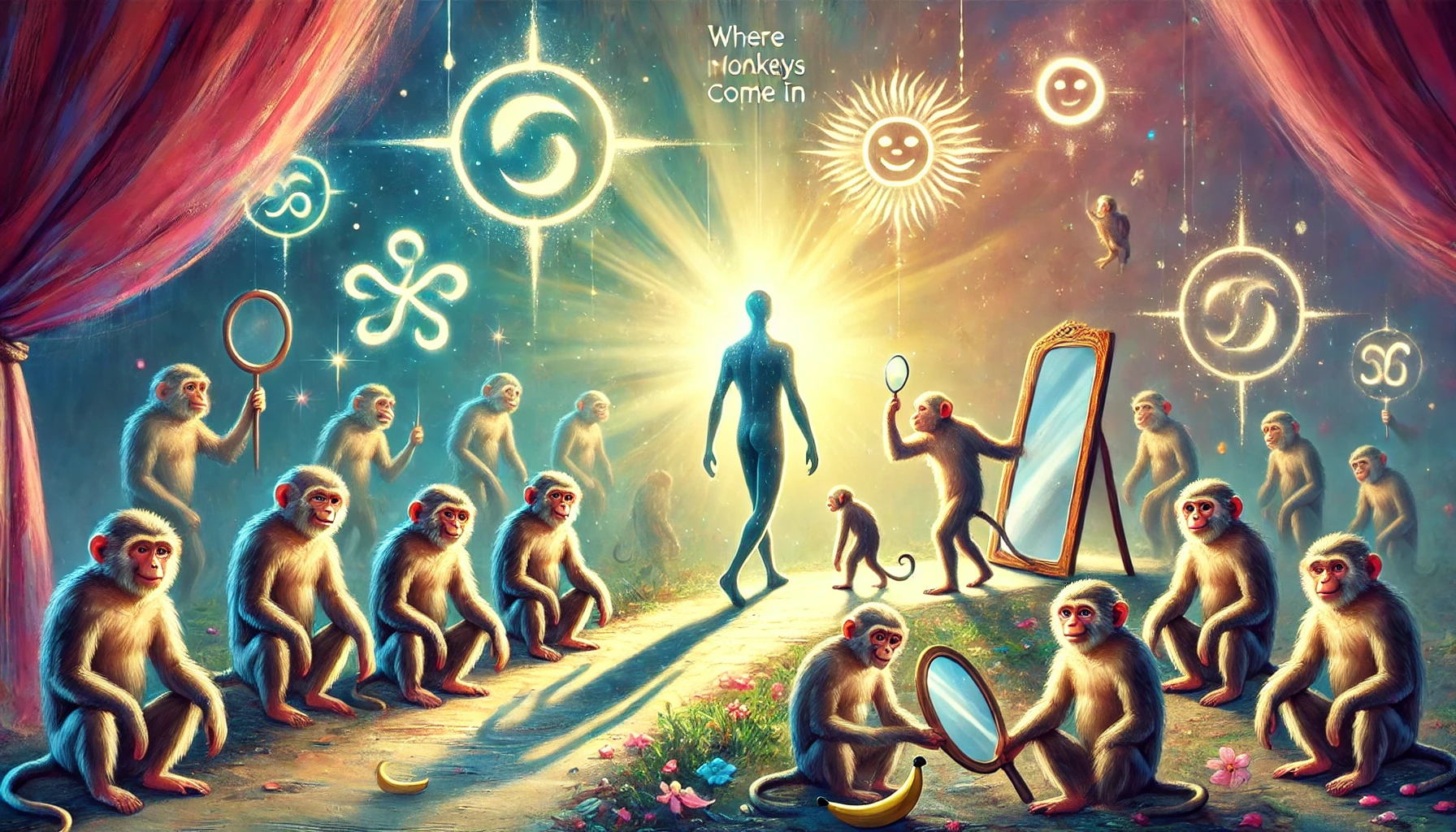

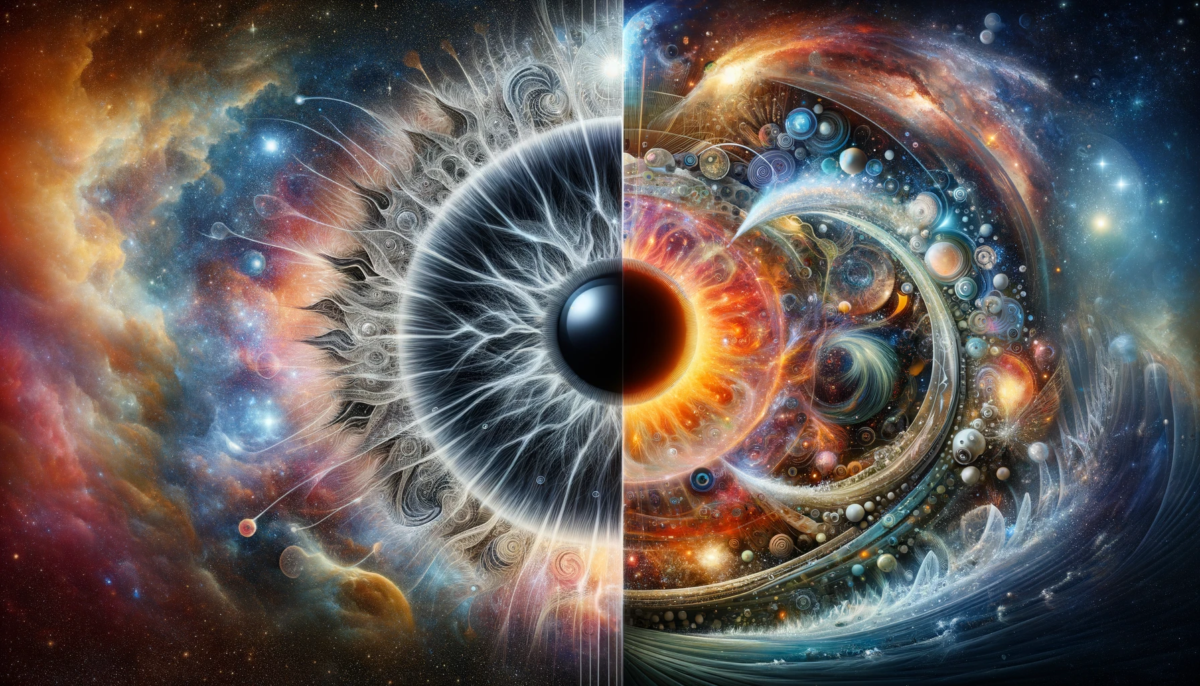
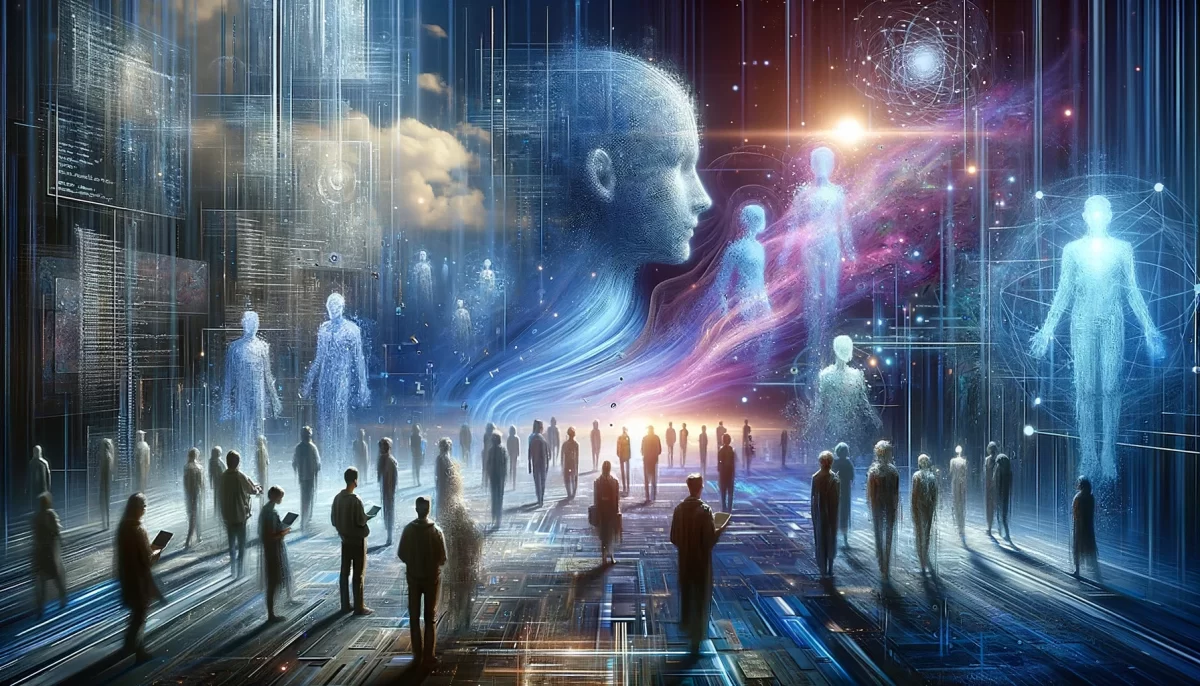


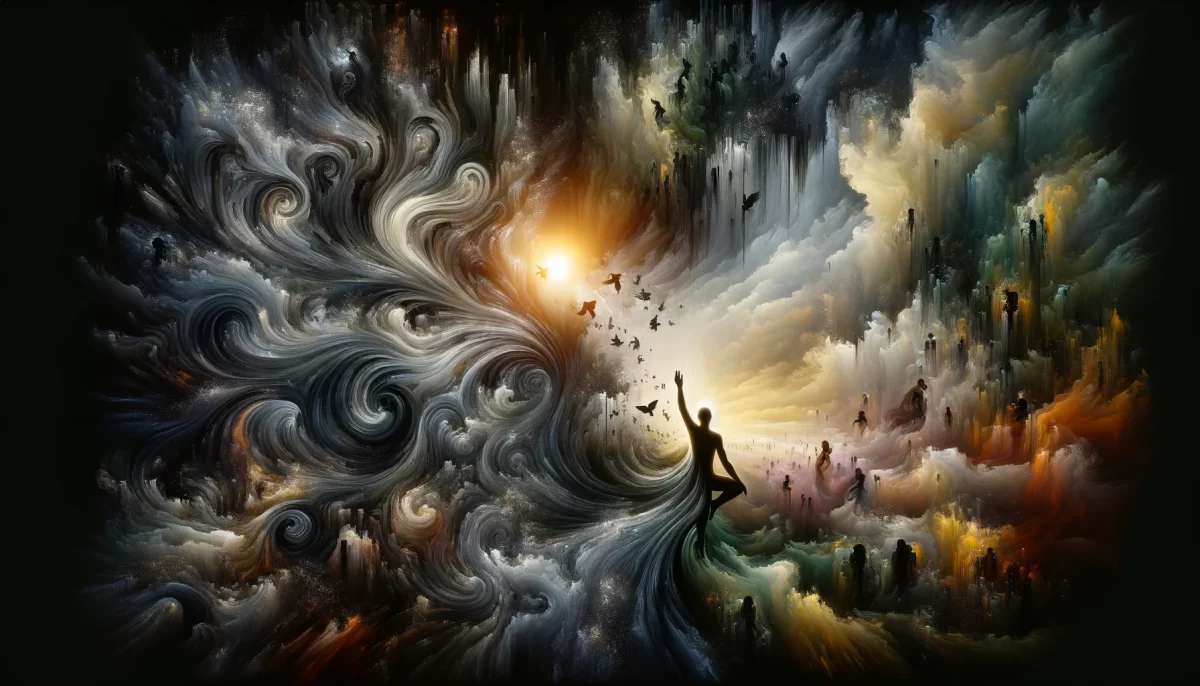
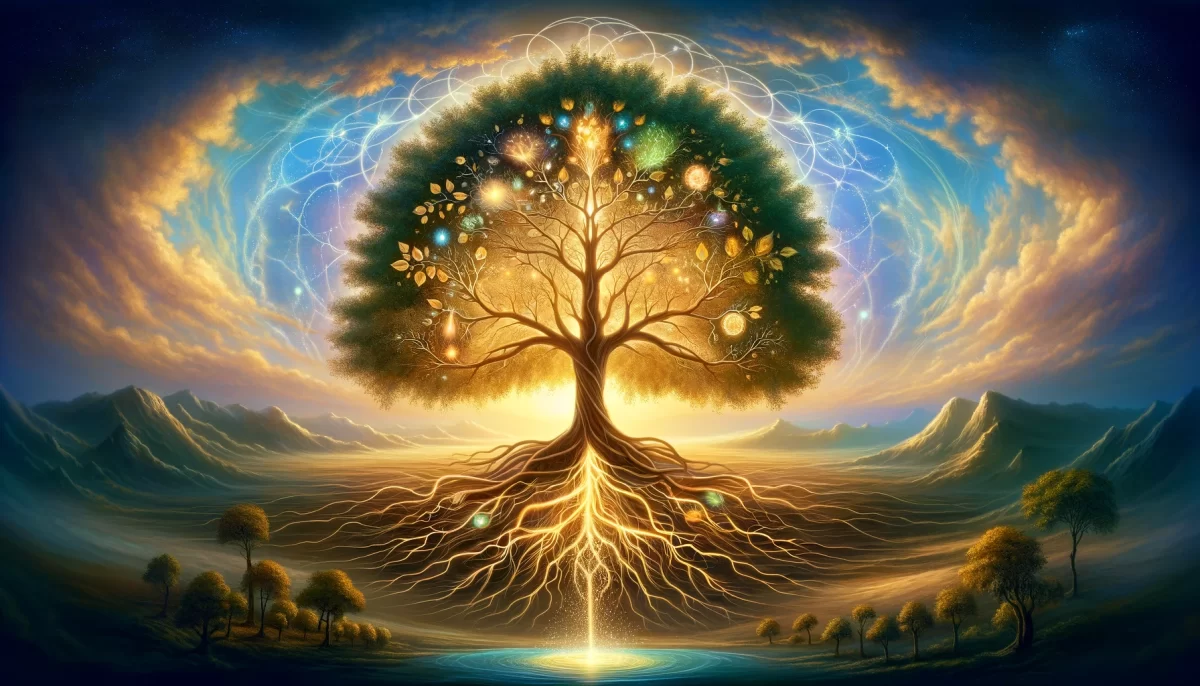
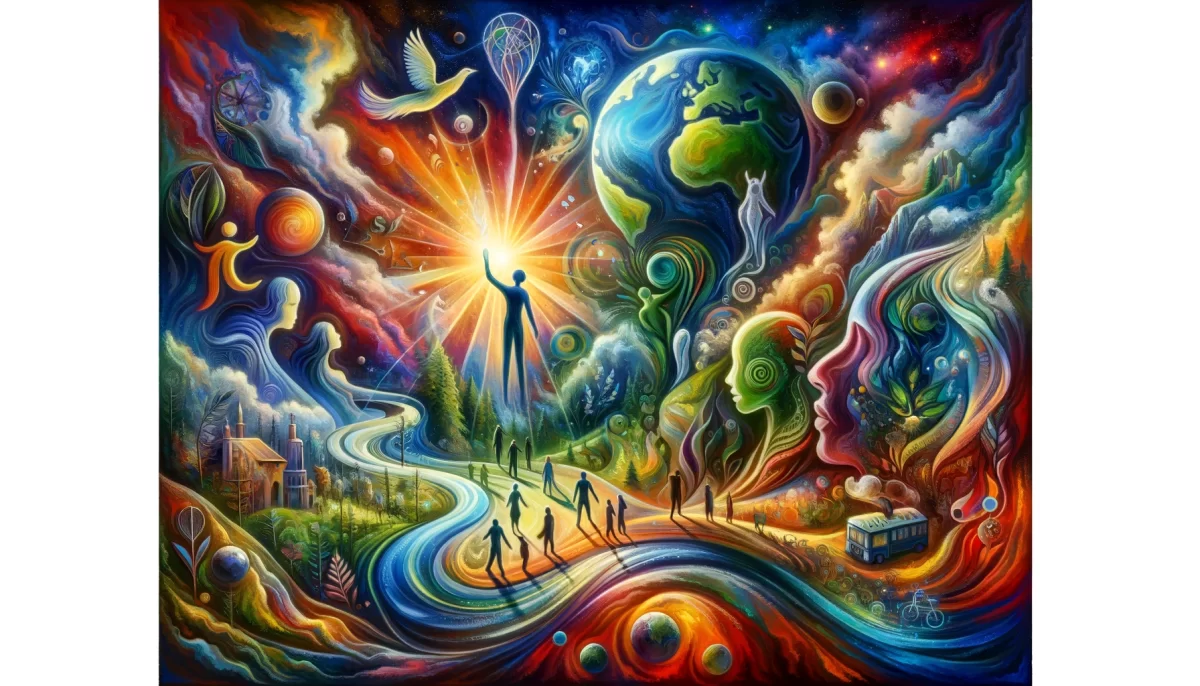
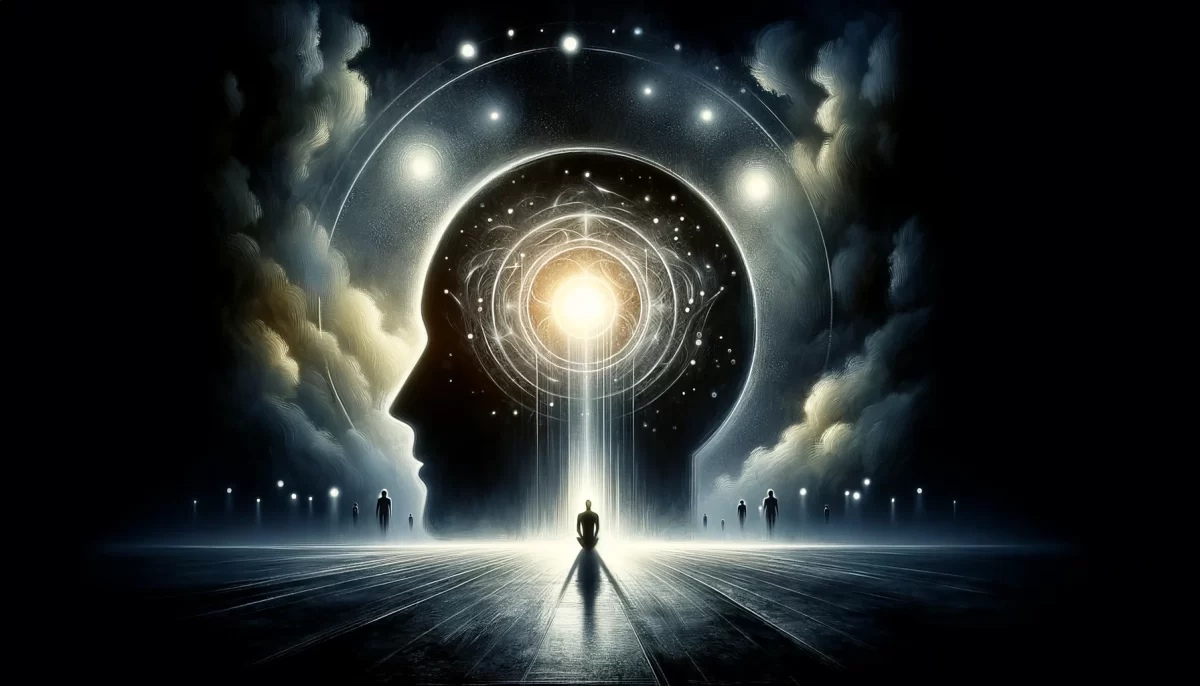
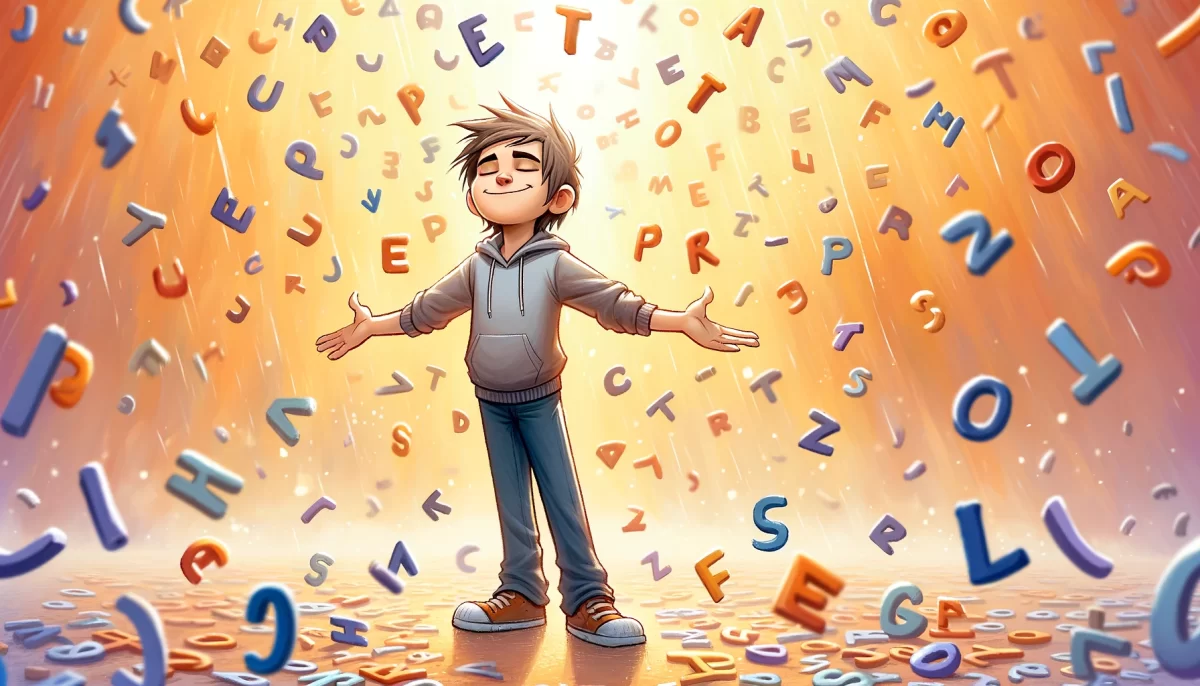
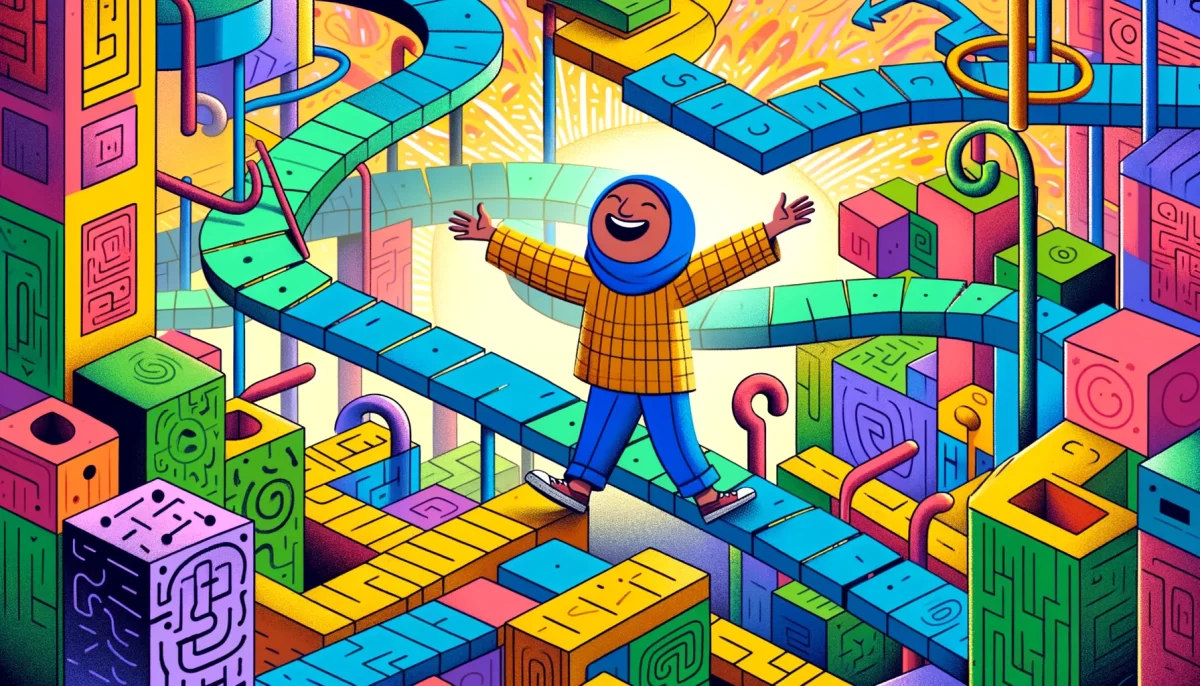
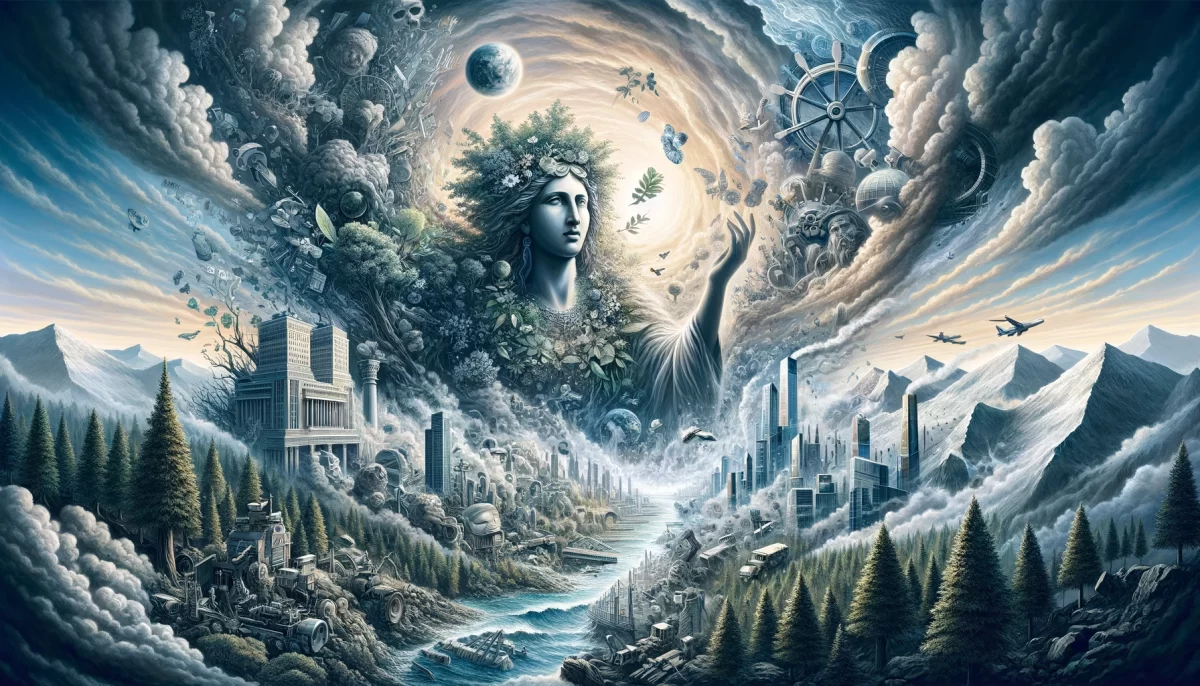
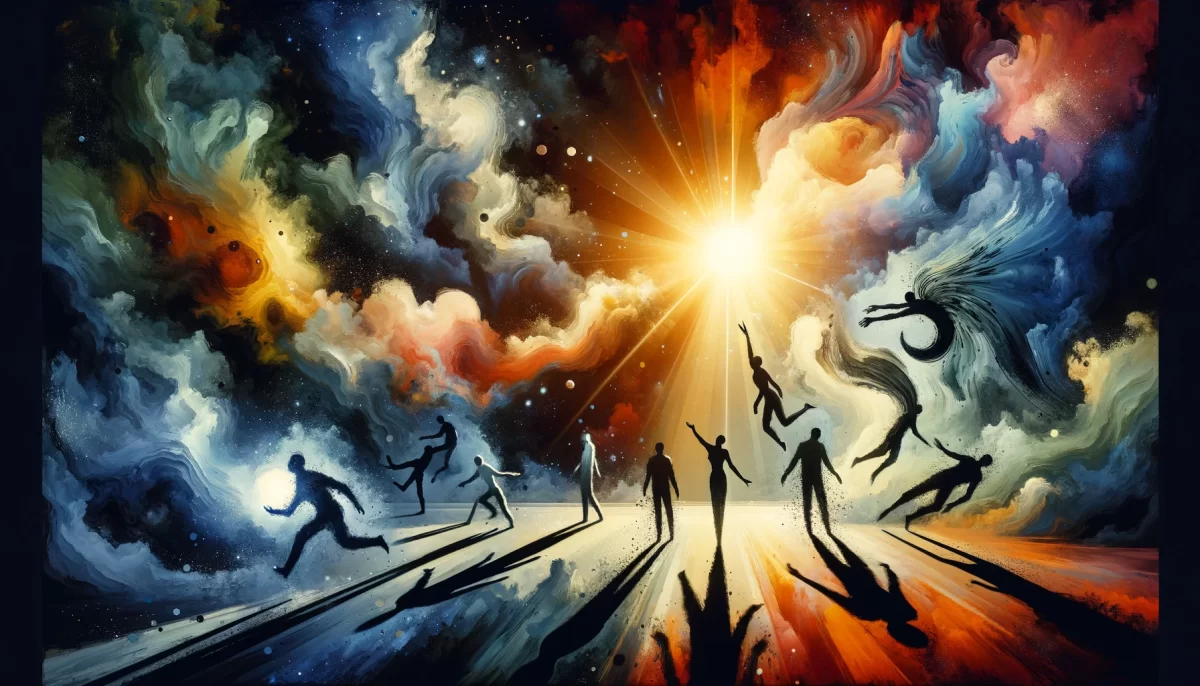


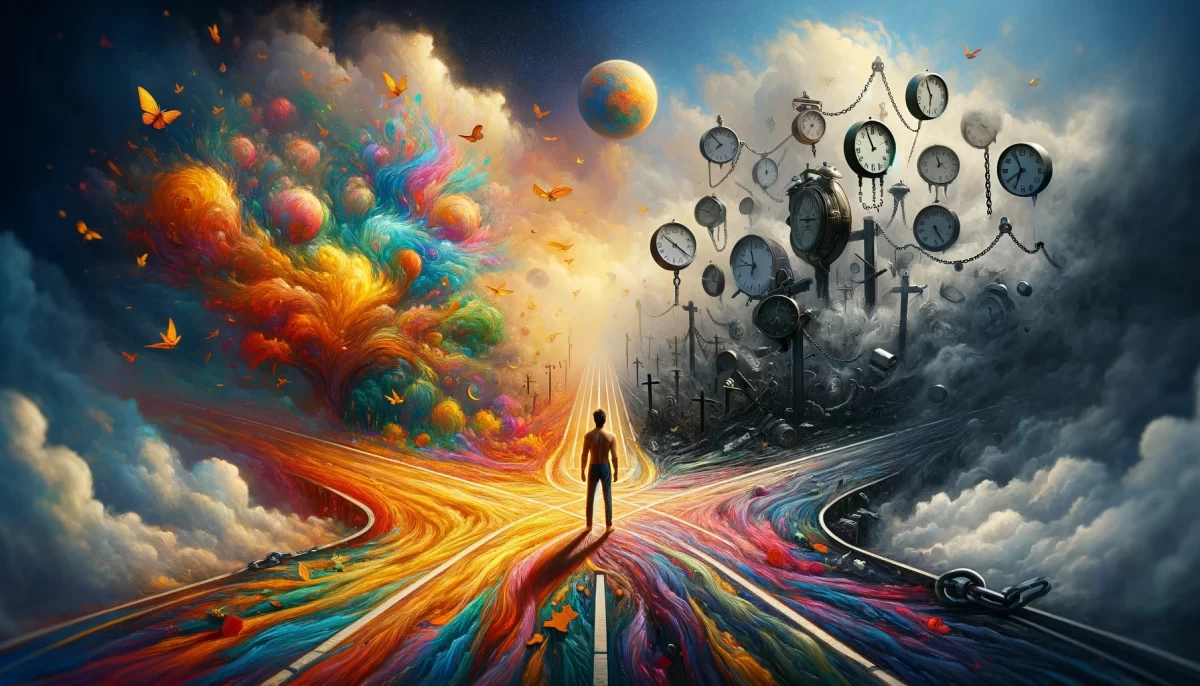
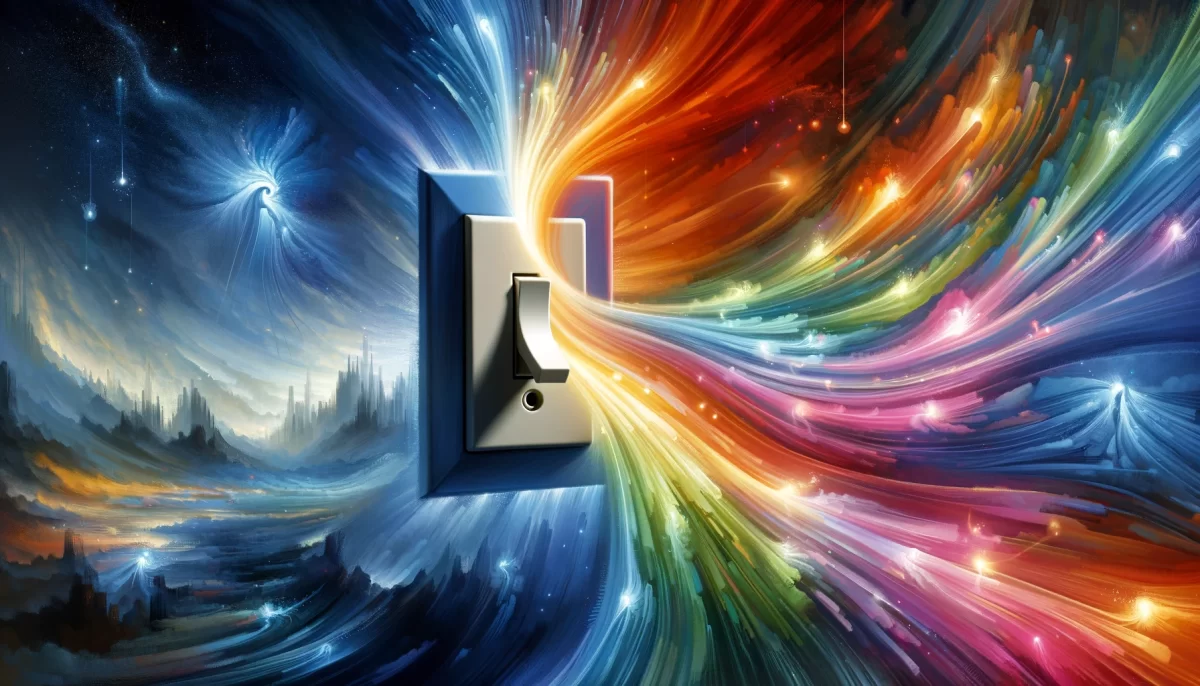

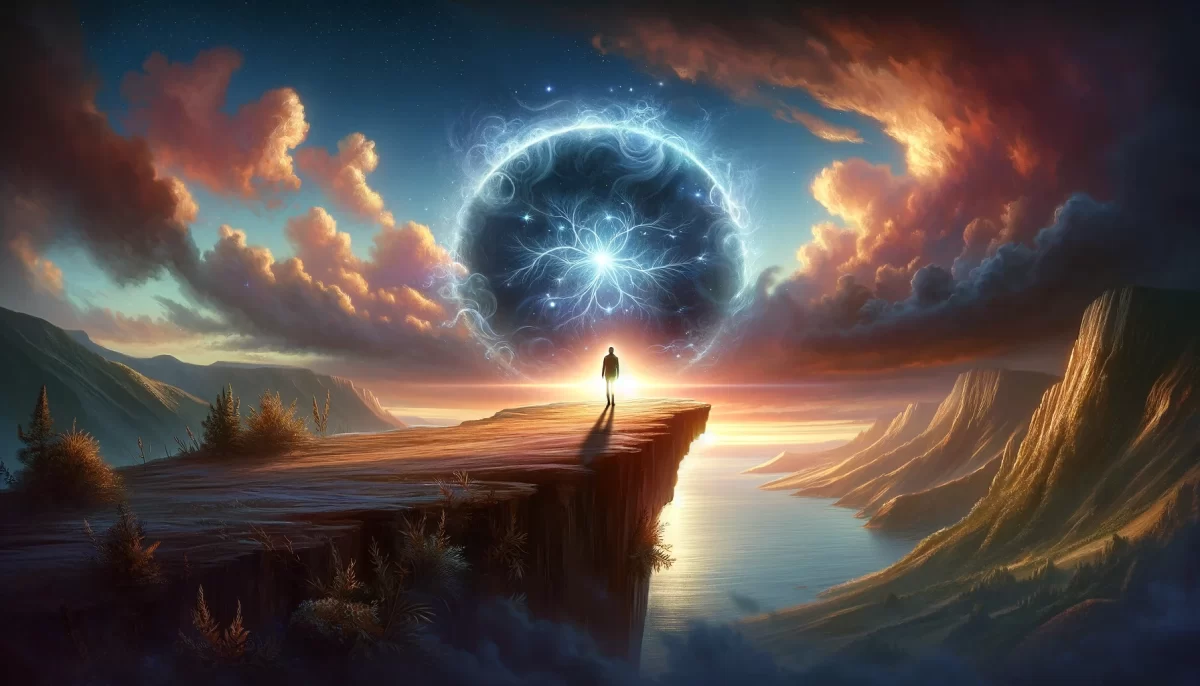
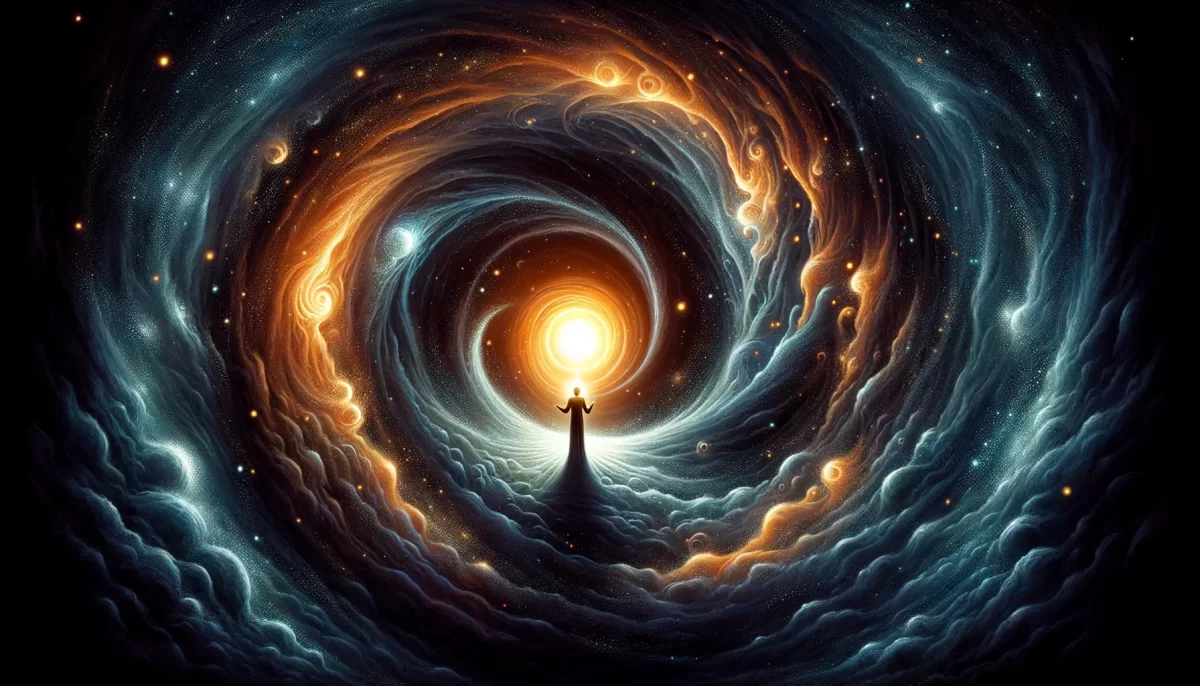
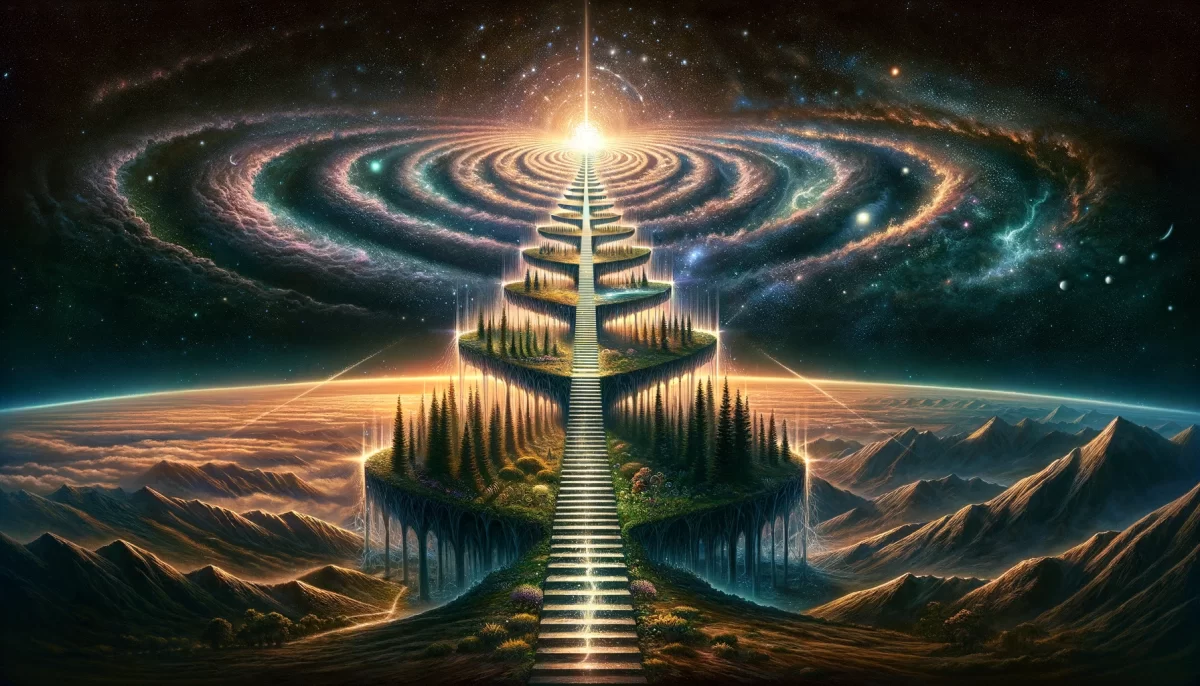
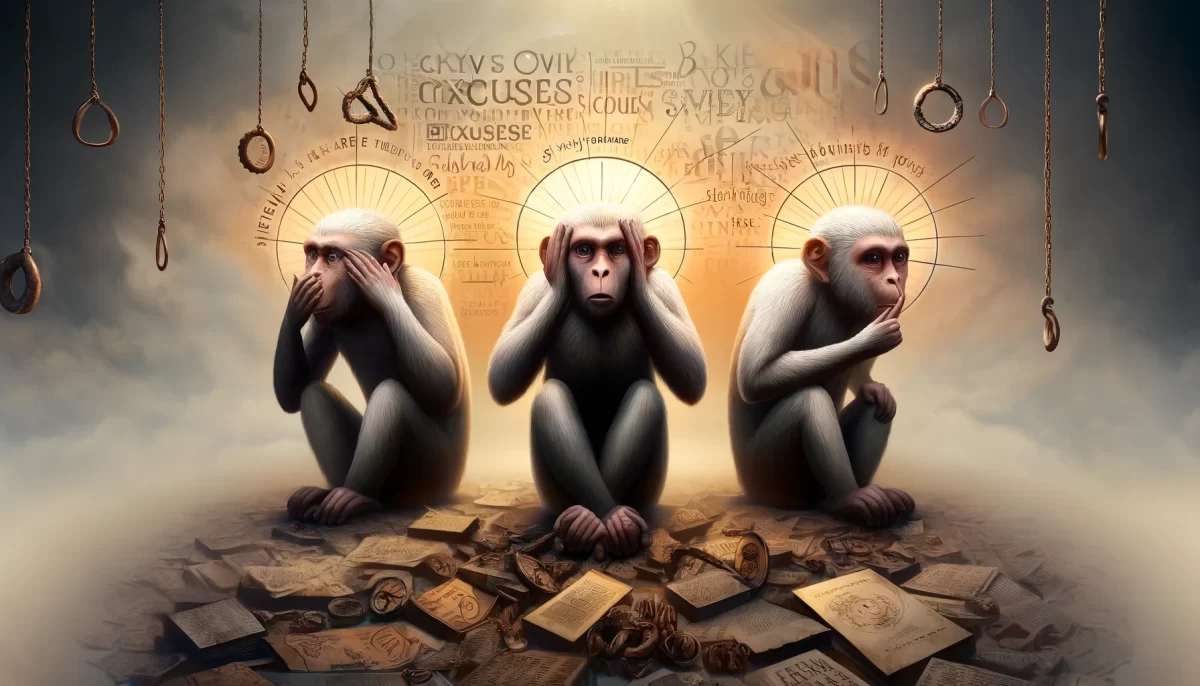
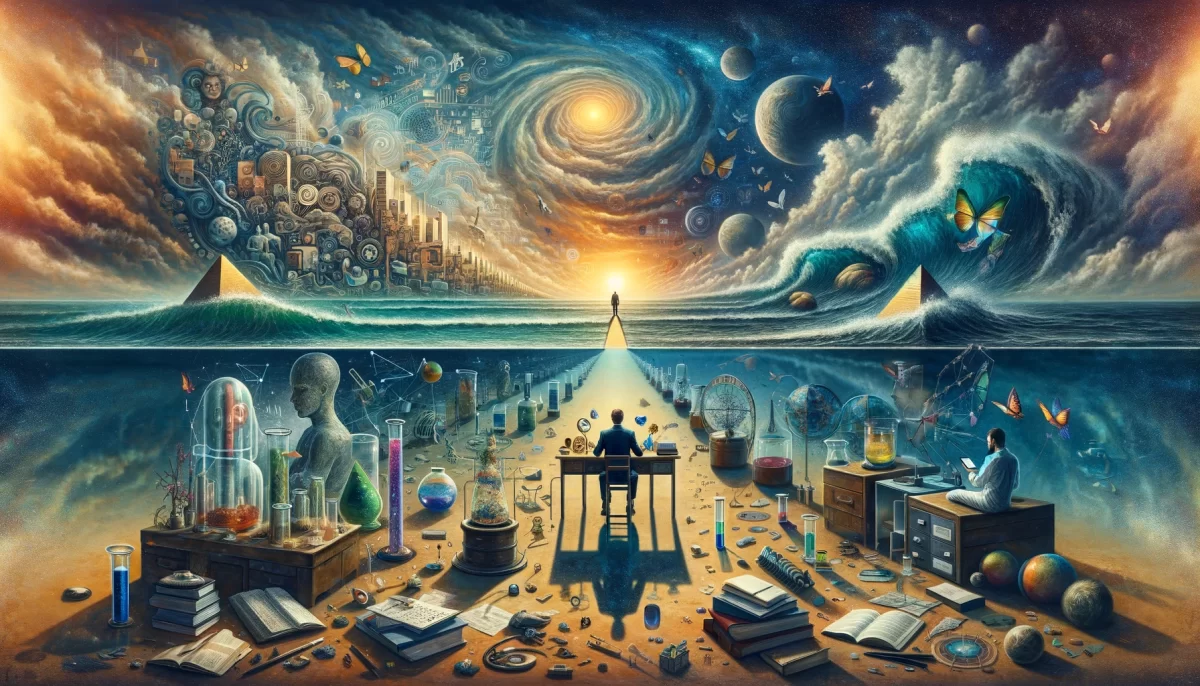
Leave a Reply